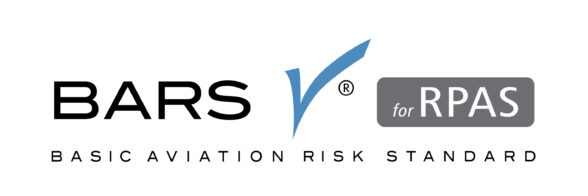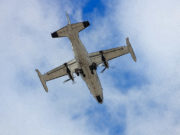MELBOURNE — Flight Safety Foundation’s Basic Aviation Risk Standard (BARS) Program, working in collaboration with some of the world’s largest mining and resource companies, has developed the Remotely Piloted Aircraft Systems (RPAS) Audit and Registration Program to provide the industry with a more efficient means of monitoring, assessing, and analyzing risks associated with RPAS.
 With airspace more accessible than ever and RPAS technology outpacing many legal and safety frameworks, there is an urgent need for greater oversight of RPAS operations to ensure the safety of those living and working around them.
With airspace more accessible than ever and RPAS technology outpacing many legal and safety frameworks, there is an urgent need for greater oversight of RPAS operations to ensure the safety of those living and working around them.
The RPAS Audit and Registration Program will help businesses manage RPAS risks more efficiently and effectively through a variety of measures, including detailed reporting of events and information sharing.
An RPAS Audit using registered BARS Audit Companies and accredited RPAS Auditors provides evaluation of operations and technical management systems of an RPAS operator.
It is a comprehensive audit with the objective of clearly articulating and verifying what procedures, processes, and systems the RPAS operator has in place to mitigate risk.
Information about the RPAS Audit Program is available on the BARS Program website.
“RPAS are critical to business operations for a range of sectors and used within a multitude of operations enabling data collection, enhancing security, and improving productivity,” said David Anderson, BARS Program Director. “However, with new technology comes new risks, and RPAS-related accidents and incidents can result in expensive damage to property and infrastructure, as well as injuries and even fatalities,” he said.
As part of the program, a global data analysis program will record knowledge and intelligence on the hazards and risks associated with the use of RPAS vehicles. This information will be used to ensure that the appropriate controls within the audit standard are in place, updated and effective.
“Enabling organizations to more effectively mitigate risk is critical to continually improving the safety and reliability of their RPAS operations,” said Dr. Hassan Shahidi, President and CEO of the Foundation. “In addition, the adoption of a global standard should result in a broad safety improvement across the sector,” he said.
“The BARS Program is proud to be a part of this ongoing investment in improving safety within the contracted aviation industry,” Anderson said
*** ENDS ***
About Flight Safety Foundation (FSF) the Basic Aviation Risk Standard Program
Flight Safety Foundation is an independent, international and impartial non-profit that exists to champion the cause of aviation safety. The Foundation established the Basic Aviation Risk Standard (BARS) Program in 2010 to review aviation operators providing aviation services to the resources and other sectors. The BARS Program is made up of a suite of risk-based aviation industry standards with supporting implementation guidelines.
The BARS Program has operated for 11 years, with close to 1000 audits in 42 different countries for more than 226 aircraft operators. As a result, about 250,079 questions have been asked as part of our structured audits, identifying some 16,931 non-conformities. Find out more about FSF at their website: www.flightsafety.org.
For more information, please contact:
Rowan Schindler
Ph: +64 27 257 0555 (NZ)
E: rowan.schindler@colelawson.com.au
